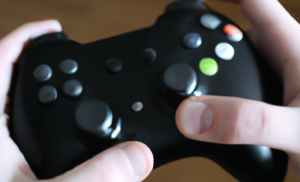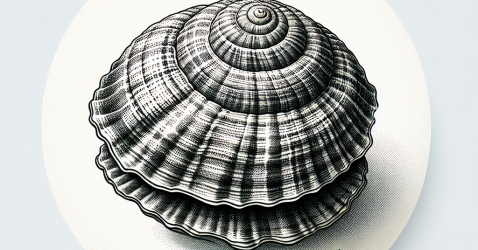Forging A Self-Care Routine With Minimalist Living
Imagine creating a daily routine that not only prioritizes your self-care but also embraces the simplicity and mindfulness of minimalist living. In a fast-paced world filled with constant distractions, finding inner peace and balance has become essential. This article explores how you can craft a self-care routine infused with minimalist principles, allowing you to declutter your mind, simplify your surroundings, and cultivate a deeper sense of well-being. Let’s embark on this journey of self-discovery and uncover the power of minimalist living in your self-care routine.
Introduction to Minimalist Living
Minimalist living is a lifestyle philosophy that promotes simplicity, intentionality, and the removal of excess in all areas of life. It is about consciously choosing to live with only the essentials, freeing oneself from the burden of material possessions and emotional clutter. By adopting minimalist principles, you can create a life that is focused on what truly matters, allowing you to prioritize self-care and well-being.
Understanding minimalist living
At its core, minimalist living is about embracing a mindset of conscious consumption and intentional living. It encourages individuals to evaluate their belongings and prioritize quality over quantity. Minimalism is not about deprivation or the rejection of material possessions altogether – it’s about making deliberate choices that align with your values and contribute to your overall well-being.
Benefits of minimalist living
There are numerous benefits to embracing a minimalist lifestyle. First and foremost, it allows you to simplify your life and reduce feelings of overwhelm and stress. By decluttering your physical surroundings, you create a sense of calm and order that can positively impact your mental and emotional well-being.
Minimalism also promotes financial freedom and mindful spending. By reducing your consumption and letting go of unnecessary possessions, you can save money, reduce debt, and cultivate a healthier relationship with money.
Furthermore, minimalist living encourages the development of healthier habits and meaningful connections. With fewer distractions and obligations, you have more time and energy to focus on self-care, personal growth, and building relationships that truly matter to you.
Importance of Self-Care
In today’s fast-paced and demanding world, self-care has become essential for maintaining overall well-being and personal happiness. Self-care refers to the intentional actions that we take to nurture and prioritize our physical, mental, and emotional health. It is not selfish or indulgent; rather, it is a vital practice that allows us to recharge, rejuvenate, and show up fully in all aspects of our lives.
Exploring the concept of self-care
Self-care encompasses a wide range of activities that can vary from person to person. It can include anything that brings you joy, reduces stress, or promotes relaxation. While some may find solace in activities such as reading, painting, or practicing yoga, others may prefer spending time in nature, taking a long bath, or engaging in meaningful conversations with loved ones. The key is to identify what activities genuinely nourish and replenish your mind and body.
Recognizing the need for self-care in modern lifestyles
In today’s busy world, it is easy to neglect self-care in pursuit of productivity and external success. However, neglecting self-care can have detrimental effects on our overall well-being. Chronic stress, burnout, and diminished mental health are all potential consequences of not prioritizing our self-care needs.
It is important to recognize that self-care is not a luxury, but a necessity. It is not something that can be put on hold or sacrificed for the sake of other commitments. By acknowledging the importance of self-care and incorporating it into our daily lives, we can cultivate a greater sense of balance, happiness, and fulfillment.
How Minimalist Living Enhances Self-Care
Minimalist living and self-care are inherently interconnected. By embracing a minimalist lifestyle, you create an environment and mindset that actively supports your self-care efforts. Here’s how minimalist living enhances self-care:
Simplifying your surroundings for mental clarity
One of the fundamental principles of minimalist living is decluttering your physical space. By removing excess belongings, you create a calm and clutter-free environment that promotes mental clarity and peace of mind. This clean and organized space becomes a sanctuary where you can relax, recharge, and engage in self-care activities without unnecessary distractions.
Minimizing distractions to focus on self-care
In a world filled with constant distractions and information overload, it can be challenging to carve out time for self-care. However, by adopting minimalist living, you intentionally eliminate distractions and simplify your daily routines. This allows you to prioritize self-care activities and ensure that they are an integral part of your daily life.
Identifying Your Self-Care Needs
To develop an effective self-care routine, it is crucial to understand your own needs and priorities. Self-reflection and introspection play a vital role in identifying the activities that nourish and replenish your mind, body, and soul.
Self-reflection and introspection
Take the time to reflect on your current lifestyle and the areas in which you feel depleted or overwhelmed. Ask yourself questions such as: What activities bring me joy and fulfillment? How do I feel after engaging in different activities? What areas of my life do I want to prioritize for self-care? By journaling or engaging in mindful practices, you can gain valuable insights into your own needs and desires.
Understanding your physical and emotional needs
Self-care encompasses both physical and emotional well-being. It is essential to understand your unique needs in both of these areas. Consider activities that promote physical health, such as regular exercise, nutritious eating, and getting enough sleep. Additionally, reflect on what activities nurture your emotional well-being, such as practicing mindfulness, spending time with loved ones, or engaging in hobbies that bring you joy.
Designing a Minimalist Self-Care Routine
Once you have identified your self-care needs, it’s time to design a minimalist self-care routine that is tailored to your unique preferences and lifestyle. Here are some steps to guide you:
Setting priorities for self-care
Make a list of your self-care activities and prioritize them based on their importance and impact on your well-being. Consider how frequently you need to engage in each activity to maintain a sense of balance and fulfillment in your life. By setting clear priorities, you ensure that self-care remains at the forefront of your daily routine.
Incorporating mindfulness practices
Mindfulness is a crucial component of a minimalist self-care routine. By practicing mindfulness, you cultivate a state of present-moment awareness, allowing you to fully engage in your self-care activities and appreciate the simple joys of everyday life. Incorporate mindfulness practices such as meditation, deep breathing exercises, or mindful movement into your routine to enhance the overall effectiveness of your self-care practice.
Creating a Sacred Space
Creating a sacred space within your home is an integral part of minimalist self-care. Your sacred space can be a designated area where you engage in your self-care activities or simply a decluttered and peaceful environment that promotes relaxation and tranquility.
Decluttering for a calm environment
Start by decluttering the area where you plan to create your sacred space. Remove any items that do not align with your self-care goals and create a sense of calm. Keep only the essentials and items that bring you joy and serenity. This minimalistic approach will help create a serene and clutter-free environment that encourages relaxation and self-reflection.
Choosing minimalistic decor and furniture
When designing your sacred space, opt for minimalistic decor and furniture that complements the overall aesthetic. Choose neutral colors and natural materials that evoke a sense of tranquility and simplicity. Keep the space uncluttered and open, allowing for ease of movement and a peaceful ambiance.
Streamlining Daily Activities
Minimalist living extends beyond physical clutter and encompasses streamlining daily activities to create more time and space for self-care. By eliminating unnecessary and time-consuming tasks, you create a daily routine that is efficient and supportive of your well-being.
Creating efficient morning and evening routines
Start by simplifying your morning and evening routines. Identify tasks that can be streamlined or removed altogether. For example, consider laying out your clothes the night before or preparing meals in advance. By optimizing your routines, you create more time and mental space for self-care activities that are meaningful to you.
Eliminating unnecessary and time-consuming tasks
Take inventory of your daily tasks and obligations, and identify any that are not essential or aligned with your self-care goals. Learn to say no to commitments that do not serve your overall well-being. By reducing your obligations, you free up time and energy to focus on self-care activities that truly nourish and rejuvenate you.
Practicing Minimalist Self-Care Activities
Incorporating specific self-care activities into your minimalist routine can further enhance your overall well-being and sense of fulfillment. Here are two key areas in which minimalist self-care can be applied:
Mindful eating and nourishment
Pay attention to the quality and content of the food you consume. Practice mindful eating by savoring each bite, eating slowly, and tuning into your body’s hunger and fullness cues. Incorporate nourishing foods into your meals that provide the nutrients your body needs to thrive. Engaging in mindful eating habits can help cultivate a healthy relationship with food and enhance your overall well-being.
Engaging in physical exercise and movement
Regular physical exercise is essential for maintaining physical health and promoting mental well-being. Engage in activities that you enjoy and that align with your self-care goals. Whether it’s practicing yoga, going for a walk in nature, or engaging in a favorite sport, find ways to incorporate movement into your daily routine. Physical exercise not only improves your physical fitness but also helps to reduce stress and increase feelings of happiness and overall well-being.
Digital Minimalism for Self-Care
In today’s digital age, our online presence and screen time can often become overwhelming and detrimental to our well-being. Incorporating digital minimalism into your self-care routine can help create a healthier relationship with technology.
Reducing screen time and digital distractions
Implement strategies to reduce your screen time and digital distractions. Set boundaries around the use of social media and other online platforms. Consider implementing screen-free periods throughout your day to allow for uninterrupted self-care activities. By reducing screen time, you create space for more meaningful and rejuvenating experiences in your life.
Curating a purposeful and mindful online presence
Take the time to curate your online presence and ensure that it aligns with your self-care goals. Unfollow accounts or unsubscribe from email lists that do not bring value or positivity into your life. Engage with content that inspires and uplifts you, and use social media as a tool for connection and learning rather than mindless scrolling. By being intentional about your online interactions, you create a digital space that is supportive of your overall well-being.
Embracing Minimalist Self-Care Practices
Embracing minimalist self-care practices involves letting go of perfectionism and overwhelm and approaching self-care with intention and simplicity.
Letting go of perfectionism and overwhelm
Remember that self-care is not about achieving perfection or checking off a list of tasks. It is about prioritizing your well-being and engaging in activities that nourish and rejuvenate you. Let go of the pressure to do it all or to do it perfectly. Embrace imperfection and find joy in the simple and meaningful moments of self-care.
Approaching self-care with intention and simplicity
Approach self-care with intention and purpose. Be mindful of the activities you engage in and the reasons behind them. Simplify your self-care routines and ensure that they align with your values and priorities. By embracing a minimalist approach to self-care, you create the space to truly connect with yourself and cultivate a deep sense of well-being.

















